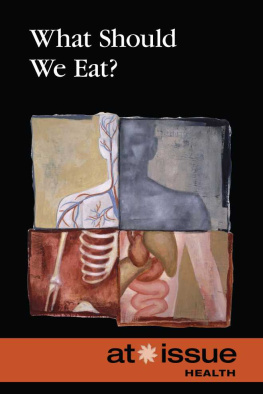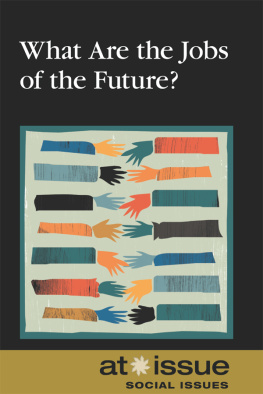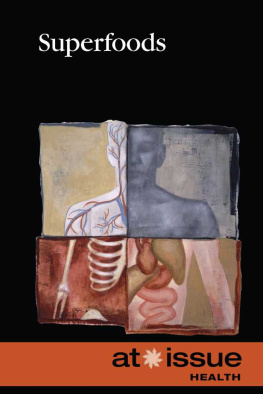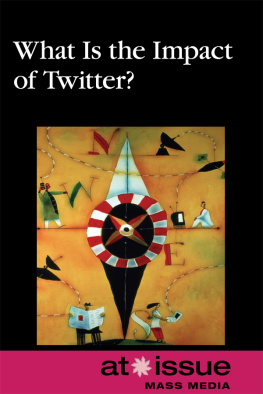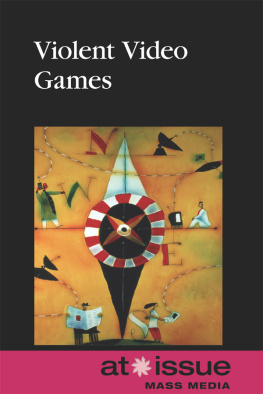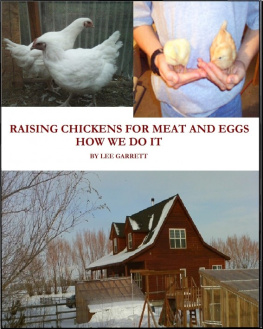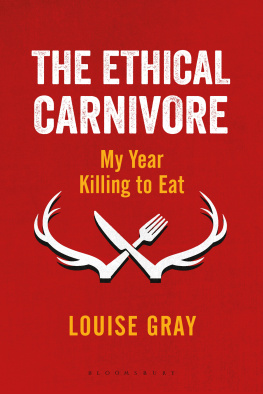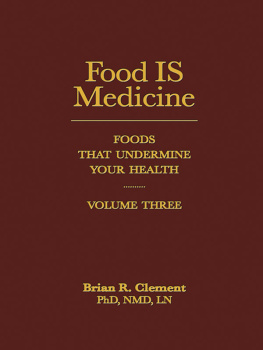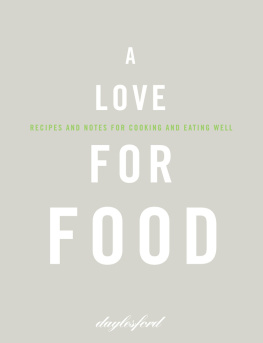Roman Espejo - What Should We Eat?
Here you can read online Roman Espejo - What Should We Eat? full text of the book (entire story) in english for free. Download pdf and epub, get meaning, cover and reviews about this ebook. year: 2016, publisher: Greenhaven Publishing, LLC, genre: Science. Description of the work, (preface) as well as reviews are available. Best literature library LitArk.com created for fans of good reading and offers a wide selection of genres:
Romance novel
Science fiction
Adventure
Detective
Science
History
Home and family
Prose
Art
Politics
Computer
Non-fiction
Religion
Business
Children
Humor
Choose a favorite category and find really read worthwhile books. Enjoy immersion in the world of imagination, feel the emotions of the characters or learn something new for yourself, make an fascinating discovery.
- Book:What Should We Eat?
- Author:
- Publisher:Greenhaven Publishing, LLC
- Genre:
- Year:2016
- Rating:5 / 5
- Favourites:Add to favourites
- Your mark:
- 100
- 1
- 2
- 3
- 4
- 5
What Should We Eat?: summary, description and annotation
We offer to read an annotation, description, summary or preface (depends on what the author of the book "What Should We Eat?" wrote himself). If you haven't found the necessary information about the book — write in the comments, we will try to find it.
Gluten, red meat, fish, insects, all things we do or dont eat, but could. Should we? This book explores how best to sustain ourselves, from organic food to fast food. Readers are treated to both sides of current dietary views on how humans should be eating for health and longevity.
What Should We Eat? — read online for free the complete book (whole text) full work
Below is the text of the book, divided by pages. System saving the place of the last page read, allows you to conveniently read the book "What Should We Eat?" online for free, without having to search again every time where you left off. Put a bookmark, and you can go to the page where you finished reading at any time.
Font size:
Interval:
Bookmark:


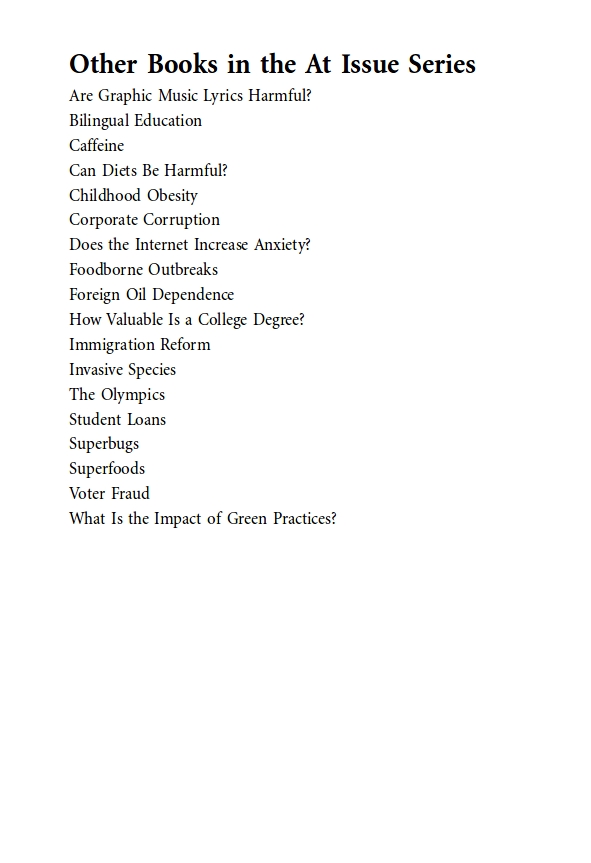
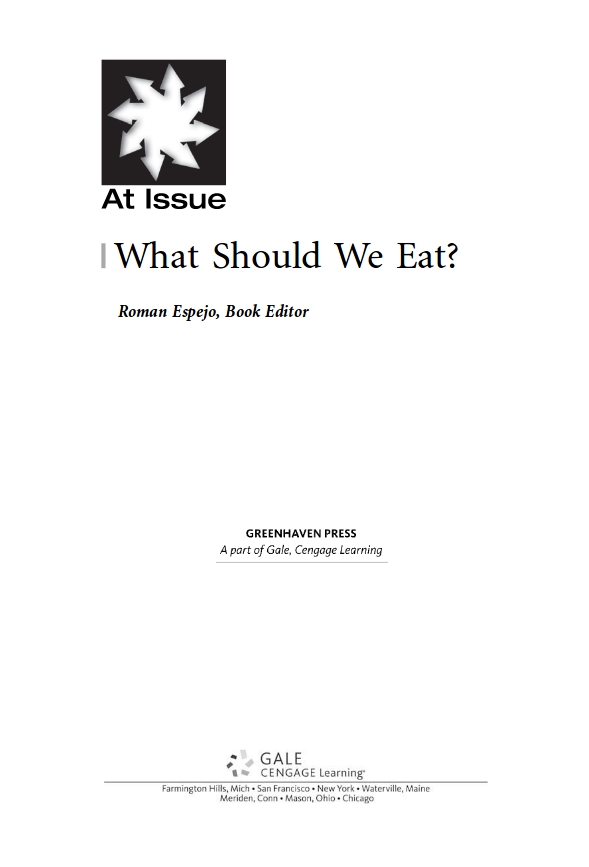

Judy Galens, Manager, Frontlist Acquisitions
2016 Greenhaven Press, a part of Gale, Cengage Learning.
Gale and Greenhaven Press are registered trademarks used herein under license.
For more information, contact:
Greenhaven Press 27500 Drake Rd.
Farmington Hills, MI 48331-3535
Or you can visit our Internet site at gale.cengage.com
ALL RIGHTS RESERVED.
No part of this work covered by the copyright herein may be reproduced, transmitted, stored, or used in any form or by any means graphic, electronic, or mechanical, including but not limited to photocopying, recording, scanning, digitizing, taping, Web distribution, information networks, or information storage and retrieval systems, except as permitted under Section 107 or 108 of the 1976 United States Copyright Act, without the prior written permission of the publisher.
For product information and technology assistance, contact us at Gale Customer Support, 1-800-877-4253
For permission to use material from this text or product, submit all requests online at www.cengage.com/permissions .
Further permissions questions can be e-mailed to .
Articles in Greenhaven Press anthologies are often edited for length to meet page requirements. In addition, original titles of these works are changed to clearly present the main thesis and to explicitly indicate the author's opinion. Every effort is made to ensure that Greenhaven Press accurately reflects the original intent of the authors. Every effort has been made to trace the owners of copyrighted material.
Cover photograph copyright Images.com/Corbis.
LIBRARY OF CONGRESS CATALOGING-IN-PUBLICATION DATA
Names: Espejo, Roman, 1977- editor.
Title: What should we eat? / Roman Espejo, book editor.
Description: Farmington Hills, Mich.: Greenhaven Press, a part of Gale, Cengage Learning, [2016] | Series: At issue | Includes bibliographical references and index.
Identifiers: LCCN 2015029477 | ISBN 9780737773903 (hardback) | ISBN 9780737773910 (paperback)
Subjects: LCSH: Nutrition--Juvenile literature. | Health--Juvenile literature. | BISAC: JUVENILE NONFICTION / Health & Daily Living / Diet & Nutrition. Classification: LCC RA784 .W488 2016 | DDC 613.2--dc23 LC record available at http://lccn.loc.gov/2015029477
Printed in the United States of America 1 2 3 4 5 6 7 20 19 18 17 16
1. Top Ten Reasons to Go Organic
Renee Loux
3. Eating Red Meat Is Not a Healthy Choice
Eugenia Killoran
5. Fish: Friend or Foe?
Harvard T.H. Chan School of Public Health
6. People Should Not Eat More Fish
Environmental Working Group
7. People Should Not Eat Fast Food
Joseph Mercola
8. New Fast-Food Restaurants OfferHealthy Menus
Shan Li
9. Six Truths About a Gluten-Free Diet
Consumer Reports
10. Insects Should Be a Part of Peoples Diets
Aaron T. Dossey
11. Insects Should Not Be a Part of Peoples Diets
Brian Tomasik
A mericans have a serious sweet tooth, according to a 2014 study published in JAMA Internal Medicine. It found that 71.4 percent of adults consume more than 10 percent of daily calories from added sugars in food and beverages each day. Consumption of added sugar, including all sugars added in processing or preparing foods, among Americans aged 2 years or older increased from an average of 235 calories per day in 1977-1978 to 318 calories per day in 1994-1996. This change was mainly attributed to the increased consumption of sugar-sweetened beverages,1 states the study. Despite decreases in consumption, it purports that Americans have too much of the sweetener: Although the absolute and percentage of daily calories derived from added sugars declined between 19992000 and 2007-2008, consumption of added sugars remained high in US diets, especially among children.2
The most pressing issue about sugar is that its blamed for the rise in worldwide obesity. Similarly, the Harvard T.H. Chan School of Public Health singles out the added sugar in sugar-sweetened beverages as the culprit: Rising consumption of sugary drinks has been a major contributor to the obesity epidemic.3 It states that in a twenty-year study of 120,000 men and women, those who added a twelve-ounce serving of a sugary drink to their diets every day gained more weight over timeon average, an extra pound every 4 yearsthan people who did not change their intake. The school contends that people who drink this liquid candy do not feel as full as if they had eaten the same calories from solid food and do not compensate by eating less. It is believed that the body has difficulty converting the fructose in sugar into glucose, which is consequently stored as fat. This fat is not used as energy immediately, which accounts for the lack of feeling full and eventual weight gain.
Additionally, sugar is speculated to increase the chance of dying from heart disease. The JAMA Internal Medicine study, for example, purported that participants who consumed between 10 to less than 25 percent of calories from sugar had a 30 percent higher risk of heart disease. [F]or those who consumed 25% or more of calories from added sugar, the relative risk was nearly tripled,4 the study warns.
Finally, theres having a sweet tooth and the risk of tooth decay. A 2014 study published in BMC Health concluded that sugar is its only cause. Only 2% of people at all ages living in Nigeria had tooth decay when their diet contained almost no sugar, around 2g per day. This is in stark contrast to the USA, where 92% of adults have experienced tooth decay,5 maintains study author Aubrey Sheiham, emeritus professor of dental public health at University College London.
Action on Sugar, a British group of health experts, argues that people do not need to eat it, period. Added sugar in our diet is a very recent phenomenon... and only occurred when sugar, obtained from sugar cane, beet and corn, became very cheap to produce. No other mammal eats added sugar and there is no requirement for added sugar in the human diet,7
In fact, The Sugar Association declares that sugar is an essential ingredient. The simple, irrefutable fact is this: sugar is a healthy part of a diet. Carbohydrates, including sugar, are the preferred sources of the bodys fuel for brain power, muscle energy and every natural process that goes on in every functioning cell.8 Furthermore, it disagrees with the argument that sugar is a greater cause of obesity than other substances. With only 15 calories per teaspoon, sugar is no more fattening than any other 15 calories. Like all carbohydrates, the body converts sugar into fuel quickly. Fats, on the other hand, are stored in fat cells to be used later, explains the association.
Of course, sugar is not the only thing to serve up controversy with each serving. Entire dietssuch as going organic or gluten-free as seen in recent yearsare based on eliminating certain kinds of foods entirely. This anthology, At Issue: What Should We Eat?, investigates what foods and ingredients divide nutritionists, activists, researchers, and consumers alike.
Font size:
Interval:
Bookmark:
Similar books «What Should We Eat?»
Look at similar books to What Should We Eat?. We have selected literature similar in name and meaning in the hope of providing readers with more options to find new, interesting, not yet read works.
Discussion, reviews of the book What Should We Eat? and just readers' own opinions. Leave your comments, write what you think about the work, its meaning or the main characters. Specify what exactly you liked and what you didn't like, and why you think so.

